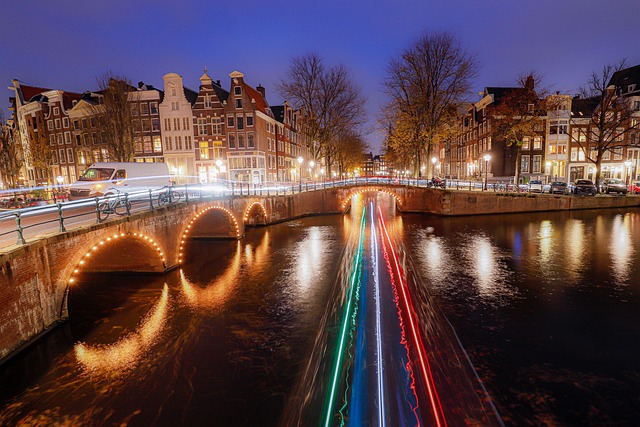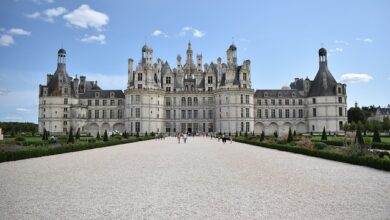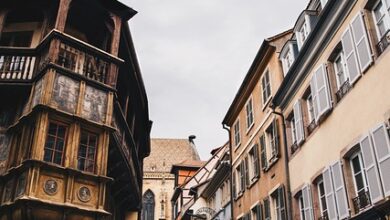Traditional Italian Festivals and Cultural Events: A Journey Through Time and Tradition

Italy, a country renowned for its rich history, breathtaking landscapes, and culinary masterpieces, is also home to some of the world’s most vibrant and captivating festivals. These events are deeply rooted in centuries-old traditions, reflecting the diverse cultural heritage of Italy’s regions. From religious processions to lively street celebrations, Italian festivals offer an unforgettable glimpse into the soul of this Mediterranean gem. Whether you’re a traveler seeking authentic experiences or simply curious about Italian culture, these traditional festivals will leave you spellbound.
1. Carnevale di Venezia (Venice Carnival)
One of the most iconic events in Italy, the Venice Carnival is a dazzling spectacle that transforms the city into a living canvas of color, music, and art. Held annually in the weeks leading up to Lent, this festival dates back to the 12th century when Venetians would gather to indulge in feasts and revelry before the solemn period of fasting.
The highlight of the carnival is the elaborate masks and costumes worn by participants, each telling its own story through intricate designs and vibrant hues. The streets come alive with parades, masquerade balls, and theatrical performances, creating an atmosphere of mystery and enchantment. Visitors can immerse themselves in workshops where artisans craft these exquisite masks using techniques passed down through generations.
2. La Festa della Repubblica (Republic Day)
Celebrated on June 2nd every year, Republic Day commemorates the birth of modern Italy after the fall of fascism during World War II. This national holiday is marked by grand military parades, air shows, and flag-waving ceremonies across the country. In Rome, the heart of the festivities takes place at the Altare della Patria (Victor Emmanuel II Monument), where dignitaries and citizens alike pay tribute to Italy’s unity and freedom.
For locals and tourists, it’s not just a day of patriotism but also an opportunity to enjoy open-air concerts, fireworks, and communal meals featuring classic Italian dishes like pasta al pomodoro and tiramisu. It’s a celebration that brings together people from all walks of life under the banner of pride and camaraderie.
3. Palio di Siena (Siena Horse Race)
Held twice a year—in July and August—the Palio di Siena is one of Italy’s oldest and most thrilling horse races. This medieval tradition pits ten neighborhoods, known as contrade , against each other in a fierce yet friendly competition around Piazza del Campo, Siena’s main square.
What sets the Palio apart is not just the race itself but the weeks of preparation and pageantry leading up to it. Each contrada hosts banquets, blessings of the horses, and historical processions showcasing their unique symbols and colors. On race day, the tension reaches its peak as bareback riders navigate the treacherous course amidst roaring crowds. Winning the Palio is a matter of immense honor, celebrated with jubilant parties that last late into the night.
4. Festa di San Gennaro (Feast of Saint Januarius)
In Naples, faith and folklore converge during the Feast of Saint Januarius, held on September 19th. Saint Januarius, or San Gennaro, is the patron saint of Naples, and his blood—a relic kept in the city’s cathedral—is believed to liquefy miraculously on this day.
Thousands of devotees flock to the Duomo di Napoli to witness this phenomenon, which is seen as a sign of divine protection for the city. The event includes religious processions, prayers, and heartfelt hymns sung by worshippers. Beyond the spiritual significance, the feast also features street markets, live music, and mouthwatering Neapolitan delicacies such as pizza margherita and sfogliatelle.
5. Infiorata di Noto (Flower Festival)
Every May, the small Sicilian town of Noto becomes a floral wonderland during the Infiorata di Noto. Artists use thousands of fresh flower petals to create stunning mosaics along the cobblestone streets, depicting everything from biblical scenes to abstract patterns.
This ephemeral art form requires meticulous planning and teamwork, as the designs must be completed within hours before they begin to fade. The festival culminates in a procession where participants walk over the petal carpets, symbolizing the transient nature of beauty and life. For visitors, it’s a chance to marvel at human creativity while soaking in the charm of Baroque architecture that defines Noto.
6. Easter Celebrations in Florence: Scoppio del Carro (Explosion of the Cart)
Easter in Florence is unlike anywhere else, thanks to the Scoppio del Carro, a centuries-old tradition dating back to the Crusades. On Easter Sunday, a towering cart filled with fireworks is pulled through the streets by white oxen adorned with garlands. The climax occurs outside the Florence Cathedral, where a dove-shaped rocket ignites the pyrotechnics, creating a spectacular explosion meant to ensure good harvests and prosperity for the coming year.
The event is accompanied by Mass services, choir performances, and communal feasts featuring traditional Tuscan specialties like ribollita and cacciucco. It’s a perfect blend of spirituality, history, and festivity that captures the essence of Florentine culture.
7. Umbria Jazz Festival
While many Italian festivals focus on ancient customs, the Umbria Jazz Festival represents a more contemporary side of Italian culture. Held annually in Perugia during July, this internationally acclaimed event attracts jazz legends and emerging talents from around the globe.
From intimate club gigs to large-scale outdoor concerts, the festival offers something for everyone. Streets buzz with impromptu jam sessions, while food stalls serve regional delights like truffle-infused dishes and gelato. For music lovers, the Umbria Jazz Festival is a paradise where melodies flow as freely as the region’s fine wines.
Why Attend These Festivals?
Italian festivals are more than just tourist attractions—they are windows into the country’s soul. They embody the values, beliefs, and passions of the Italian people, offering a deeper understanding of their way of life. Attending these events allows you to connect with locals, savor authentic cuisine, and witness age-old traditions that continue to thrive in today’s fast-paced world.
Whether you’re captivated by the elegance of Venice’s masks, the adrenaline rush of Siena’s horse race, or the spiritual fervor of Naples’ saintly feast, there’s no shortage of magic to experience in Italy. So pack your bags, embrace the spirit of adventure, and let these traditional festivals guide you on an unforgettable journey through la dolce vita.



